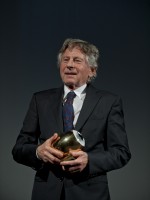Vangelis is a Editor and Sound Grec born on 29 march 1943 at Volos
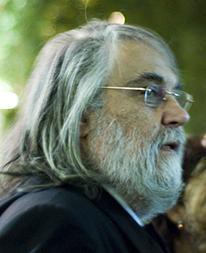
Evangelos Odysseas Papathanassiou (Greek: Ευάγγελος Οδυσσέας Παπαθανασίου [evˈaɲɟelos oðiˈseas papaθanaˈsiu]; born 29 March 1943), professionally known as Vangelis (/væŋˈɡɛlɨs/), is a Greek composer of electronic, progressive, ambient, jazz, pop rock, and orchestral music. He is best known for his Academy Award-winning score for the film Chariots of Fire, composing scores for the films Antarctica, Blade Runner, 1492: Conquest of Paradise and Alexander, and the use of his music in the PBS documentary Cosmos: A Personal Voyage by Carl Sagan.
Vangelis began his professional musical career working with several popular bands of the 1960s such as The Forminx and Aphrodite's Child, with the latter's album 666 going on to be recognized as a psychedelic "classic". Throughout the 1970s, Vangelis composed music scores for several animal documentaries, including L'Apocalypse Des Animaux, La Fête sauvage and Opéra sauvage; the success of these scores brought him into the film scoring mainstream. In the early 1980s, Vangelis formed a musical partnership with Jon Anderson, the lead singer of progressive rock band Yes, and the duo went on to release several albums together as Jon & Vangelis.
In 1981, he composed the score for the Oscar-winning film Chariots of Fire, which won him the Academy Award for Best Original Music Score. The soundtrack's single, "Titles", also reached the top of the American Billboard Hot 100 chart and was used as the background music at the London 2012 Olympics winners' medal presentation ceremonies.
Having had a career in music spanning over 50 years and having composed and performed more than 52 albums, Vangelis is one of the most important exponents of electronic music.
Vangelis was born 29 March 1943, in Agria, near Volos, Greece. Largely a self-taught musician, he reportedly began composing at the age of four. He refused to take traditional piano lessons, and throughout his career did not have substantial knowledge of reading or writing musical notation. He studied painting—an art he still practises—at the Academy of Fine Arts in Athens. When he was six, Vangelis's parents enrolled him at a specialist music school in Athens. Vangelis said in an interview with Life, when asked about his lack of ability to read music: When the teachers asked me to play something, I would pretend that I was reading it and play from memory. I didn't fool them, but I didn't care.
Work in bands
In the early 1960s he was one of the founders of pop group The Forminx (or The Formynx), which became popular in Greece. Based in Athens, the five-piece band played a mixture of cover versions and their own material, the latter written mostly by Vangelis (with lyrics by DJ and record producer Nico Mastorakis) but still sung in English. The Forminx released nine hit singles and a Christmas EP before disbanding in 1966 at the peak of their success. A film being made about them at the time, which was initially directed by Theo Angelopoulos, was never fully completed, and the songs, composed for the movie, were never released. Vangelis spent the next two years mostly studio-bound, writing and producing for other Greek artists.
Around the time of the student riots in 1968, Vangelis founded progressive rock band Aphrodite's Child together with Demis Roussos, Loukas Sideras, and Anargyros "Silver" Koulouris. After an unsuccessful attempt to enter the UK, they found a home in Paris where they recorded their first single, a hit across much of Europe called Rain and Tears. Other singles followed, including two albums, which, in total, sold over 20 million copies. The record sales led the record company to request a third album, and Vangelis went on to conceive the double-album 666, based on Revelation, the last book in the Bible. One of the many remarkable features of this album is Irene Papas's guest participation (vocal on "Infinity"). Tensions between members during the recording of 666 eventually caused the split of the band in 1971, but the album was still released in 1972. Despite the split, Vangelis has since produced several albums and singles for Demis Roussos, who, in turn, contributed vocals to the Blade Runner soundtrack.
Early solo works
While still in Aphrodite's Child, Vangelis had already been involved in other projects. In 1970 he had composed the score for a film directed by Henry Chapier and called Sex Power (Demis Roussos sang vocals). In 1971, some jam sessions with a group of musicians at Marquee Studios in London had resulted in two albums' worth of material, unofficially released without Vangelis' permission in 1978, titled Hypothesis (aka Visions of the Future), and The Dragon. Vangelis succeeded in taking legal action to have them withdrawn. A more successful project was his scoring of wildlife films made by French filmmaker Frédéric Rossif. The first was L'Apocalypse des animaux, released in 1973. In 1972, the student riots of 1968 provided the inspiration for an album titled Fais que ton rêve soit plus long que la nuit (Make Your Dream Last Longer Than the Night), comprising musical passages mixed with news snippets and protest songs; some lyrics were based on graffiti daubed on walls during the riots.
Solo career
In 1973 Vangelis' solo career began in earnest. His first "official" solo album was Earth, though it did actually feature a group of musicians including ex-Aphrodite's Child guitarist Silver Koulouris and also vocalist and songwriter Robert Fitoussi (better known as F.R. David of "Words" fame). This line-up, later briefly going out under the name "Odyssey", released a single in 1974 titled "Who", but that was Vangelis' last involvement with them. Later in 1974, Vangelis was widely tipped to join another prog-rock band, Yes, following the departure of Rick Wakeman. After a couple of weeks of rehearsals Vangelis wavered on the option of joining Yes and, the band had to detour and hire Swiss keyboard player Patrick Moraz instead, who later joined The Moody Blues. Vangelis did, however, become friends with Yes' lead vocalist Jon Anderson, and later worked with him on several occasions, including as the duo Jon & Vangelis.
After moving to London, Vangelis signed with RCA Records, set up his own studio, Nemo Studios, and began recording a string of electronic albums, such as Heaven and Hell (1975), Albedo 0.39 (1976), Spiral (1977), Beaubourg (1978), and China (1979). Parts of Heaven and Hell were later used as the theme to the PBS television series Cosmos by Carl Sagan. Two melodies from Albedo 0.39, "Alpha" and "Pulstar", and also one track from L'Apocalypse des animaux, "Création du Monde", were also used in Cosmos. Another part (the song "So Long Ago, So Clear"), featured guest vocals by Jon Anderson, marking the start of the partnership. Vangelis also contributed as a producer and keyboard player to the album Phos, by the Greek rock band Socrates Drank the Conium (later known simply as Socrates).
In 1979, Vangelis composed the score for another animal documentary by Frédéric Rossif, Opéra sauvage. Almost as well known as L'Apocalypse des animaux, the resulting soundtrack would bring him to the attention of some of the world's top filmmakers. The music itself would be re-used in other films (most notably the track "L'Enfant" in The Year of Living Dangerously (1982) by Peter Weir; the melody of same (in marching band format) can also be heard at the beginning of the 1924 Summer Olympics opening ceremonies scene in the film Chariots of Fire ) and television commercials (the track "Hymne", used in Barilla pasta commercials in Italy and Ernest & Julio Gallo wine ads in the US).
Film work
Chariots of Fire
In 1981, Vangelis wrote the score for the film Chariots of Fire, set at the 1924 Summer Olympics. The choice of music was unorthodox as most period films featured traditional orchestral scores, whereas Vangelis' music was modern and synthesizer-heavy. The movie won the Academy Award for Best Picture and Vangelis won the Academy Award for Best Original Music Score. The opening theme of the film was released as a single in 1982, topping the American Billboard chart for one week after climbing steadily for five months.
Greek musician Stavros Logarides claimed Vangelis had copied the melody of "Titles" from one of his compositions called "City of Violets". Member of a 1970s band called Poll, and a friend of Vangelis at the time, Logarides sued Vangelis for plagiarism in 1987. At the court hearing, Vangelis set up synthesizers in the courtroom and played for the judge to demonstrate his compositional process. The judge ruled that any similarities in the melody were minor and "Titles" was a Vangelis original.
Other notable Vangelis soundtracks were Antarctica for the film Nankyoku Monogatari in 1983, and The Bounty in 1984. Vangelis also collaborated in 1981 and 1986 with Italian singer Milva, achieving success especially in Germany with the albums Ich hab' keine Angst and Geheimnisse (I have no fear and Secrets). The Italian language Nana Mouskouri album also featured her singing Vangelis composition "Ti Amerò". Collaboration numbers with lyricist Mikalis Bourboulis sung by Maria Farantouri included the tracks "Odi A", "San Elektra", and "Tora Xero".
The main theme for Chariots of Fire was also chosen by Apple's co-founder Steven P. Jobs for the public introduction of the first Macintosh computer, in January 1984.
Blade Runner
In 1982, Vangelis collaborated with director Ridley Scott, to write the score for the science fiction film Blade Runner. Capturing the isolation and melancholy of Harrison Ford's character,
Rick Deckard, the Vangelis score is as much a part of the dystopian environment as the decaying buildings and ever-present rain.
A disagreement led to Vangelis withholding permission for his performance of the music from Blade Runner to be released, and the studio instead hired a group of musicians dubbed "The New American Orchestra" to record the official LP released at the time. It took 12 years before the disagreement was resolved and Vangelis's own work was released in the United States, in 1994. The soundtrack was still incomplete, as the film contained some non-Vangelis tracks as well. Over the years a number of bootleg recordings of the Blade Runner soundtrack from unknown sources have been released, mostly targeted to collectors as "private releases", that contain most of the music cues (including the Ladd Company logo theme). An official three disc box set was released in late 2007 to commemorate the film's 25th anniversary: it contained the original 1994 album, a second disc containing some more of the missing music cues and a third disc of new Vangelis material inspired by Blade Runner. The 2007 release still lacks some incidental music, most notably the background music from the Taffey Lewis bar scene featuring vocals by Demis Roussos.
1492: Conquest of Paradise
In 1992, Paramount Pictures released the film 1492: Conquest of Paradise, also directed by Ridley Scott, as a 500th anniversary commemoration of Christopher Columbus' voyage to the New World. Vangelis's score was nominated as "Best Original Score – Motion Picture" at the 1993 Golden Globe awards, but was not nominated for an Academy Award.
Other works
Carl Sagan's TV series Cosmos: A Personal Voyage uses several pieces composed by Vangelis (1975-79), including the series' opening theme which was Heaven And Hell's 3rd Movement. Also used to spectacular effect was Alpha (edited version from the album Albedo 0.39) and an excerpt from Beaubourg. Alpha was also used in the drama series Death of a Princess
A rare Vangelis recording entitled Etends - Tu les Chiens Aboyer? was included in the TV series. Originally this recording was only available on a 1977 Vangelis album called Ignacio (Polygram Records / Barclay) (CD Cat No: 813 042 2). In producing the series, Sagan himself confirmed that using Vangelis' recordings really set off the romance of the Cosmos. Undoubtedly, the Cosmos TV series introduced Vangelis' music to a whole new audience as the series went global in 1981. RCA Records in Europe including the UK, issued The Music of Cosmos soundtrack album to accompany the series which has since been deleted (Original Vinyl Cat No. BL89334). CD copies of the RCA soundtrack are rare. On the cover of the RCA album, Sagan says "...A persistent theme in the deluge of letters we have received is delight in the music of Cosmos."
In 1982 Vangelis performed for the Spanish television with Neuronium (Michel huygen and Carlos Guirao). This performance was recorded in 1996 in a CD entitled A separate affair. In 1983 Vangelis wrote the music for Michael Cacoyannis' staging of the Greek tragedy Elektra which was performed featuring Irene Papas at the open-air amphitheater at Epidavros in Greece. The same year Vangelis composed his first score for a ballet by Wayne Eagling. It was originally performed by Lesley Colier and Wayne Eagling himself at an Amnesty International gala in Drury Lane, but in 1984 the Royal Ballet School presented it again at the Sadler's Wells theater. In 1985 and 1986, Vangelis wrote music for two more ballets: "Frankenstein – Modern Prometheus" and "The Beauty and the Beast". In 1992, Vangelis wrote the music for the Euripides play, Medea, that featured Irene Papas. Though uncredited, Vangelis also wrote the theme music for the 1992 French motion picture, "La Peste" (The Plague) from director Luis Puenzo. In the 90's, Vangelis scored a number of undersea documentaries for French ecologist and filmmaker, Jacques-Yves Cousteau.
During 1980, six years after Vangelis decided against joining Yes, he and Jon Anderson, the lead singer of Yes, released their first album together, Short Stories, under the band name of Jon & Vangelis. They would eventually go on to release three more afterwards; The Friends of Mr. Cairo, Private Collection and Page of Life released in 1981, 1983, and 1991 respectively.
Olympic Games
In May 2000, Vangelis composed the music as well as designed and directed the artistic Olympic flag relay portion of the closing ceremonies of the 2000 Sydney Olympic Games. While no official recording of Vangelis' composition for the 2000 Sydney Games exists, the music can be heard accompanying the presentation of the emblem of the 2004 Athens Games. His work from Chariots of Fire was heard during the 2012 Summer Olympics opening ceremony.
2000s
Vangelis performed live and released Mythodea, a predominantly orchestral rather than electronic piece that was originally written in 1993, and used by NASA as the theme for the Mars Odyssey mission in 2001. A year later, in 2002, Vangelis created the 2002 FIFA World Cup Official Anthem for the 2002 World Cup.
In 2004, Vangelis released the score for Oliver Stone's Alexander, continuing his involvement with projects related to Greece. Vangelis released 2 albums in 2007; the first was a 3-CD set for the 25th anniversary of Blade Runner, titled Blade Runner Trilogy and second was the soundtrack for the Greek movie, El Greco, titled El Greco Original Motion Picture Soundtrack.
On 11 December 2011, Vangelis was invited by Katara's Cultural Village in the state of Qatar to conceive, design, direct, and compose music for the opening of its world-class outdoor amphitheater. The event was witnessed by a number of world leaders and dignitaries participating in the 4th Forum of the United Nations Alliance of Civilizations held in the city of Doha. The event featured a light show by German artist Gert Hof and was filmed for a future video release by Oscar-winning British filmmaker Hugh Hudson.
In 2012, Vangelis re-tooled and added new pieces to his iconic Chariots of Fire soundtrack, for use in Chariots of Fire, the 2012 stage adaptation of the 1981 film of the same title.
 (2004)
(2004)
(Music Arranger)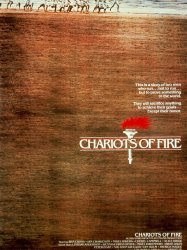 (1981)
(1981)
(Original Music Composer) (1982)
(1982)
(Original Music Composer)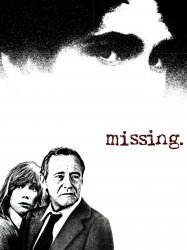 (1982)
(1982)
(Original Music Composer)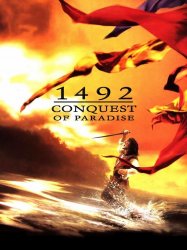 (1992)
(1992)
(Original Music Composer)
Source : Wikidata
Vangelis

- Infos
- Photos
- Best films
- Family
- Characters
- Awards
Birth name Ευάγγελος Οδυσσέας ΠαπαθανασίουEvángelos Odysséas Papathanassíou
Nationality Grece
Birth 29 march 1943 at Volos
Death 17 may 2022 (at 79 years)
Nationality Grece
Birth 29 march 1943 at Volos
Death 17 may 2022 (at 79 years)
Evangelos Odysseas Papathanassiou (Greek: Ευάγγελος Οδυσσέας Παπαθανασίου [evˈaɲɟelos oðiˈseas papaθanaˈsiu]; born 29 March 1943), professionally known as Vangelis (/væŋˈɡɛlɨs/), is a Greek composer of electronic, progressive, ambient, jazz, pop rock, and orchestral music. He is best known for his Academy Award-winning score for the film Chariots of Fire, composing scores for the films Antarctica, Blade Runner, 1492: Conquest of Paradise and Alexander, and the use of his music in the PBS documentary Cosmos: A Personal Voyage by Carl Sagan.
Vangelis began his professional musical career working with several popular bands of the 1960s such as The Forminx and Aphrodite's Child, with the latter's album 666 going on to be recognized as a psychedelic "classic". Throughout the 1970s, Vangelis composed music scores for several animal documentaries, including L'Apocalypse Des Animaux, La Fête sauvage and Opéra sauvage; the success of these scores brought him into the film scoring mainstream. In the early 1980s, Vangelis formed a musical partnership with Jon Anderson, the lead singer of progressive rock band Yes, and the duo went on to release several albums together as Jon & Vangelis.
In 1981, he composed the score for the Oscar-winning film Chariots of Fire, which won him the Academy Award for Best Original Music Score. The soundtrack's single, "Titles", also reached the top of the American Billboard Hot 100 chart and was used as the background music at the London 2012 Olympics winners' medal presentation ceremonies.
Having had a career in music spanning over 50 years and having composed and performed more than 52 albums, Vangelis is one of the most important exponents of electronic music.
Biography
Formative yearsVangelis was born 29 March 1943, in Agria, near Volos, Greece. Largely a self-taught musician, he reportedly began composing at the age of four. He refused to take traditional piano lessons, and throughout his career did not have substantial knowledge of reading or writing musical notation. He studied painting—an art he still practises—at the Academy of Fine Arts in Athens. When he was six, Vangelis's parents enrolled him at a specialist music school in Athens. Vangelis said in an interview with Life, when asked about his lack of ability to read music: When the teachers asked me to play something, I would pretend that I was reading it and play from memory. I didn't fool them, but I didn't care.
Work in bands
In the early 1960s he was one of the founders of pop group The Forminx (or The Formynx), which became popular in Greece. Based in Athens, the five-piece band played a mixture of cover versions and their own material, the latter written mostly by Vangelis (with lyrics by DJ and record producer Nico Mastorakis) but still sung in English. The Forminx released nine hit singles and a Christmas EP before disbanding in 1966 at the peak of their success. A film being made about them at the time, which was initially directed by Theo Angelopoulos, was never fully completed, and the songs, composed for the movie, were never released. Vangelis spent the next two years mostly studio-bound, writing and producing for other Greek artists.
Around the time of the student riots in 1968, Vangelis founded progressive rock band Aphrodite's Child together with Demis Roussos, Loukas Sideras, and Anargyros "Silver" Koulouris. After an unsuccessful attempt to enter the UK, they found a home in Paris where they recorded their first single, a hit across much of Europe called Rain and Tears. Other singles followed, including two albums, which, in total, sold over 20 million copies. The record sales led the record company to request a third album, and Vangelis went on to conceive the double-album 666, based on Revelation, the last book in the Bible. One of the many remarkable features of this album is Irene Papas's guest participation (vocal on "Infinity"). Tensions between members during the recording of 666 eventually caused the split of the band in 1971, but the album was still released in 1972. Despite the split, Vangelis has since produced several albums and singles for Demis Roussos, who, in turn, contributed vocals to the Blade Runner soundtrack.
Early solo works
While still in Aphrodite's Child, Vangelis had already been involved in other projects. In 1970 he had composed the score for a film directed by Henry Chapier and called Sex Power (Demis Roussos sang vocals). In 1971, some jam sessions with a group of musicians at Marquee Studios in London had resulted in two albums' worth of material, unofficially released without Vangelis' permission in 1978, titled Hypothesis (aka Visions of the Future), and The Dragon. Vangelis succeeded in taking legal action to have them withdrawn. A more successful project was his scoring of wildlife films made by French filmmaker Frédéric Rossif. The first was L'Apocalypse des animaux, released in 1973. In 1972, the student riots of 1968 provided the inspiration for an album titled Fais que ton rêve soit plus long que la nuit (Make Your Dream Last Longer Than the Night), comprising musical passages mixed with news snippets and protest songs; some lyrics were based on graffiti daubed on walls during the riots.
Solo career
In 1973 Vangelis' solo career began in earnest. His first "official" solo album was Earth, though it did actually feature a group of musicians including ex-Aphrodite's Child guitarist Silver Koulouris and also vocalist and songwriter Robert Fitoussi (better known as F.R. David of "Words" fame). This line-up, later briefly going out under the name "Odyssey", released a single in 1974 titled "Who", but that was Vangelis' last involvement with them. Later in 1974, Vangelis was widely tipped to join another prog-rock band, Yes, following the departure of Rick Wakeman. After a couple of weeks of rehearsals Vangelis wavered on the option of joining Yes and, the band had to detour and hire Swiss keyboard player Patrick Moraz instead, who later joined The Moody Blues. Vangelis did, however, become friends with Yes' lead vocalist Jon Anderson, and later worked with him on several occasions, including as the duo Jon & Vangelis.
After moving to London, Vangelis signed with RCA Records, set up his own studio, Nemo Studios, and began recording a string of electronic albums, such as Heaven and Hell (1975), Albedo 0.39 (1976), Spiral (1977), Beaubourg (1978), and China (1979). Parts of Heaven and Hell were later used as the theme to the PBS television series Cosmos by Carl Sagan. Two melodies from Albedo 0.39, "Alpha" and "Pulstar", and also one track from L'Apocalypse des animaux, "Création du Monde", were also used in Cosmos. Another part (the song "So Long Ago, So Clear"), featured guest vocals by Jon Anderson, marking the start of the partnership. Vangelis also contributed as a producer and keyboard player to the album Phos, by the Greek rock band Socrates Drank the Conium (later known simply as Socrates).
In 1979, Vangelis composed the score for another animal documentary by Frédéric Rossif, Opéra sauvage. Almost as well known as L'Apocalypse des animaux, the resulting soundtrack would bring him to the attention of some of the world's top filmmakers. The music itself would be re-used in other films (most notably the track "L'Enfant" in The Year of Living Dangerously (1982) by Peter Weir; the melody of same (in marching band format) can also be heard at the beginning of the 1924 Summer Olympics opening ceremonies scene in the film Chariots of Fire ) and television commercials (the track "Hymne", used in Barilla pasta commercials in Italy and Ernest & Julio Gallo wine ads in the US).
Film work
Chariots of Fire
In 1981, Vangelis wrote the score for the film Chariots of Fire, set at the 1924 Summer Olympics. The choice of music was unorthodox as most period films featured traditional orchestral scores, whereas Vangelis' music was modern and synthesizer-heavy. The movie won the Academy Award for Best Picture and Vangelis won the Academy Award for Best Original Music Score. The opening theme of the film was released as a single in 1982, topping the American Billboard chart for one week after climbing steadily for five months.
Greek musician Stavros Logarides claimed Vangelis had copied the melody of "Titles" from one of his compositions called "City of Violets". Member of a 1970s band called Poll, and a friend of Vangelis at the time, Logarides sued Vangelis for plagiarism in 1987. At the court hearing, Vangelis set up synthesizers in the courtroom and played for the judge to demonstrate his compositional process. The judge ruled that any similarities in the melody were minor and "Titles" was a Vangelis original.
Other notable Vangelis soundtracks were Antarctica for the film Nankyoku Monogatari in 1983, and The Bounty in 1984. Vangelis also collaborated in 1981 and 1986 with Italian singer Milva, achieving success especially in Germany with the albums Ich hab' keine Angst and Geheimnisse (I have no fear and Secrets). The Italian language Nana Mouskouri album also featured her singing Vangelis composition "Ti Amerò". Collaboration numbers with lyricist Mikalis Bourboulis sung by Maria Farantouri included the tracks "Odi A", "San Elektra", and "Tora Xero".
The main theme for Chariots of Fire was also chosen by Apple's co-founder Steven P. Jobs for the public introduction of the first Macintosh computer, in January 1984.
Blade Runner
In 1982, Vangelis collaborated with director Ridley Scott, to write the score for the science fiction film Blade Runner. Capturing the isolation and melancholy of Harrison Ford's character,
Rick Deckard, the Vangelis score is as much a part of the dystopian environment as the decaying buildings and ever-present rain.
A disagreement led to Vangelis withholding permission for his performance of the music from Blade Runner to be released, and the studio instead hired a group of musicians dubbed "The New American Orchestra" to record the official LP released at the time. It took 12 years before the disagreement was resolved and Vangelis's own work was released in the United States, in 1994. The soundtrack was still incomplete, as the film contained some non-Vangelis tracks as well. Over the years a number of bootleg recordings of the Blade Runner soundtrack from unknown sources have been released, mostly targeted to collectors as "private releases", that contain most of the music cues (including the Ladd Company logo theme). An official three disc box set was released in late 2007 to commemorate the film's 25th anniversary: it contained the original 1994 album, a second disc containing some more of the missing music cues and a third disc of new Vangelis material inspired by Blade Runner. The 2007 release still lacks some incidental music, most notably the background music from the Taffey Lewis bar scene featuring vocals by Demis Roussos.
1492: Conquest of Paradise
In 1992, Paramount Pictures released the film 1492: Conquest of Paradise, also directed by Ridley Scott, as a 500th anniversary commemoration of Christopher Columbus' voyage to the New World. Vangelis's score was nominated as "Best Original Score – Motion Picture" at the 1993 Golden Globe awards, but was not nominated for an Academy Award.
Other works
Carl Sagan's TV series Cosmos: A Personal Voyage uses several pieces composed by Vangelis (1975-79), including the series' opening theme which was Heaven And Hell's 3rd Movement. Also used to spectacular effect was Alpha (edited version from the album Albedo 0.39) and an excerpt from Beaubourg. Alpha was also used in the drama series Death of a Princess
A rare Vangelis recording entitled Etends - Tu les Chiens Aboyer? was included in the TV series. Originally this recording was only available on a 1977 Vangelis album called Ignacio (Polygram Records / Barclay) (CD Cat No: 813 042 2). In producing the series, Sagan himself confirmed that using Vangelis' recordings really set off the romance of the Cosmos. Undoubtedly, the Cosmos TV series introduced Vangelis' music to a whole new audience as the series went global in 1981. RCA Records in Europe including the UK, issued The Music of Cosmos soundtrack album to accompany the series which has since been deleted (Original Vinyl Cat No. BL89334). CD copies of the RCA soundtrack are rare. On the cover of the RCA album, Sagan says "...A persistent theme in the deluge of letters we have received is delight in the music of Cosmos."
In 1982 Vangelis performed for the Spanish television with Neuronium (Michel huygen and Carlos Guirao). This performance was recorded in 1996 in a CD entitled A separate affair. In 1983 Vangelis wrote the music for Michael Cacoyannis' staging of the Greek tragedy Elektra which was performed featuring Irene Papas at the open-air amphitheater at Epidavros in Greece. The same year Vangelis composed his first score for a ballet by Wayne Eagling. It was originally performed by Lesley Colier and Wayne Eagling himself at an Amnesty International gala in Drury Lane, but in 1984 the Royal Ballet School presented it again at the Sadler's Wells theater. In 1985 and 1986, Vangelis wrote music for two more ballets: "Frankenstein – Modern Prometheus" and "The Beauty and the Beast". In 1992, Vangelis wrote the music for the Euripides play, Medea, that featured Irene Papas. Though uncredited, Vangelis also wrote the theme music for the 1992 French motion picture, "La Peste" (The Plague) from director Luis Puenzo. In the 90's, Vangelis scored a number of undersea documentaries for French ecologist and filmmaker, Jacques-Yves Cousteau.
During 1980, six years after Vangelis decided against joining Yes, he and Jon Anderson, the lead singer of Yes, released their first album together, Short Stories, under the band name of Jon & Vangelis. They would eventually go on to release three more afterwards; The Friends of Mr. Cairo, Private Collection and Page of Life released in 1981, 1983, and 1991 respectively.
Olympic Games
In May 2000, Vangelis composed the music as well as designed and directed the artistic Olympic flag relay portion of the closing ceremonies of the 2000 Sydney Olympic Games. While no official recording of Vangelis' composition for the 2000 Sydney Games exists, the music can be heard accompanying the presentation of the emblem of the 2004 Athens Games. His work from Chariots of Fire was heard during the 2012 Summer Olympics opening ceremony.
2000s
Vangelis performed live and released Mythodea, a predominantly orchestral rather than electronic piece that was originally written in 1993, and used by NASA as the theme for the Mars Odyssey mission in 2001. A year later, in 2002, Vangelis created the 2002 FIFA World Cup Official Anthem for the 2002 World Cup.
In 2004, Vangelis released the score for Oliver Stone's Alexander, continuing his involvement with projects related to Greece. Vangelis released 2 albums in 2007; the first was a 3-CD set for the 25th anniversary of Blade Runner, titled Blade Runner Trilogy and second was the soundtrack for the Greek movie, El Greco, titled El Greco Original Motion Picture Soundtrack.
On 11 December 2011, Vangelis was invited by Katara's Cultural Village in the state of Qatar to conceive, design, direct, and compose music for the opening of its world-class outdoor amphitheater. The event was witnessed by a number of world leaders and dignitaries participating in the 4th Forum of the United Nations Alliance of Civilizations held in the city of Doha. The event featured a light show by German artist Gert Hof and was filmed for a future video release by Oscar-winning British filmmaker Hugh Hudson.
In 2012, Vangelis re-tooled and added new pieces to his iconic Chariots of Fire soundtrack, for use in Chariots of Fire, the 2012 stage adaptation of the 1981 film of the same title.
Best films
 (2004)
(2004)(Music Arranger)
 (1981)
(1981)(Original Music Composer)
 (1982)
(1982)(Original Music Composer)
 (1982)
(1982)(Original Music Composer)
 (1992)
(1992)(Original Music Composer)
Usually with
Filmography of Vangelis (23 films)
Editor

The Mantle of Love (1978)
, 1h50Directed by Adriaan Ditvoorst
Genres Drama, Comedy
Actors Willeke van Ammelrooy, Rijk de Gooyer, Mimi Kok, Joost Prinsen, Julien Schoenaerts
Roles Editor
Rating67%





Sound

Twilight of Shadows (2014)
, 1h54Directed by Mohammed Lakhdar-Hamina
Origin Algerie
Genres Drama
Actors Samir Boitard, Nicolas Bridet, Thierry Neuvic
Roles Original Music Composer
Rating55%





Le film se passe pendant la Guerre d'Algérie. Un officier français, convaincu que l’Algérie appartient à la France, se retrouve confronté à un soldat refusant d’exécuter un combattant algérien comme on le lui avait ordonné.

Trashed (2012)
, 1h38Origin United-kingdom
Genres Documentary
Themes Environmental films, Documentary films about environmental issues
Actors Jeremy Irons
Rating75%





Le film suit l'acteur britannique Jeremy Irons alors qu'il examine à l'échelle mondiale l'impact de l'humanité moderne et des déchets. L'acteur oscarisé rencontre des spécialistes, des scientifiques, des particuliers victimes de la pollution. Une grande partie du fim expose les conséquences des émissions des incinérateurs, pour cela le documentaire s'attarde en France ou en Islande. Le documentaire s'intéresse aussi à la question du plastique et à ses conséquences sur les océans.

Easy A (2010)
, 1h32Directed by Will Gluck
Origin USA
Genres Comedy, Romance
Themes Films about sexuality, Erotic films, LGBT-related films, LGBT-related films, Films about virginity, LGBT-related film
Actors Emma Stone, Amanda Bynes, Penn Badgley, Cam Gigandet, Thomas Haden Church, Patricia Clarkson
Rating69%





Olive Penderghast, a teenage girl living in Ojai, California lies to her best friend Rhiannon Abernathy about going on a date in order to get out of camping with Rhiannon's hippie parents. Instead, she hangs around the house all weekend listening to Natasha Bedingfield's "Pocketful of Sunshine". The following Monday, pressed by Rhiannon, Olive lies about losing her virginity to a college guy. Marianne Bryant, a prissy and strictly religious Christian at their school, overhears her telling the lie and soon it spreads like wildfire. The school's conservative church group run by Marianne decides Olive will be their next project. Olive confides the truth to her friend Brandon, and he explains how others bully him because of his homosexuality. He later asks Olive to pretend to sleep with him so that he will be accepted by everyone.
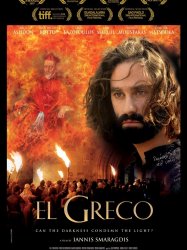
El Greco (2007)
, 1h59Directed by Yannis Smaragdis
Origin Espagne
Genres Drama, Documentary
Themes Seafaring films, Peinture, Transport films, Documentary films about the visual arts
Actors Laia Marull, Lakis Lazopoulos, Sotiris Moustakas, Theo Alexander
Roles Original Music Composer
Rating64%





The film tells the story of Domenicos Theotokopoulos, better known as El Greco, a great Greek artist of the 16th century with an uncompromising character, who sets off from his homeland Crete and goes to Venice and finally Toledo, in search of freedom and love. There he is confronted by his greatest adversary, the Spanish Inquisition, but his creative consciousness and power make him stand out and overcome barbarity and ignorance.

Alexander (2004)
, 2h55Directed by Oliver Stone
Origin German
Genres Drama, War, Biography, Action, Adventure, Historical, Peplum, Romance
Themes Politique, Films about sexuality, Bisexuality-related films, LGBT-related films, Political films, LGBT-related films, Films about royalty, LGBT-related film
Actors Colin Farrell, Angelina Jolie, Val Kilmer, Connor Paolo, Jared Leto, Rosario Dawson
Roles Music Arranger
Rating56%





The film is based on the life of Alexander the Great, King of Macedonia, who conquered Asia Minor, Egypt, Persia and part of ancient India. Shown are some of the key moments of Alexander's youth, his invasion of the mighty Persian Empire and his death. It also outlines his early life, including his difficult relationship with his father Philip II of Macedonia, his strained feeling towards his mother Olympias, the unification of the Greek city-states and the two Kingdoms (Macedonia and Epirus) under the Hellenic League, and the conquest of the Persian Empire in 331 BC. It also details his plans to reform his empire and the attempts he made to reach the end of the then known world.

1492: Conquest of Paradise (1992)
, 2h29Directed by Ridley Scott
Origin France
Genres Drama, Biography, Action, Adventure, Historical
Themes Seafaring films, Transport films
Actors Gérard Depardieu, Sigourney Weaver, Armand Assante, Fernando Rey, Loren Dean, Ángela Molina
Roles Original Music Composer
Rating63%





In the beginning, Columbus is obsessed with making a trip westwards to Asia, but lacks crew and a ship. The Catholic theologians at the University of Salamanca heavily disapprove of it, and they are not keen on ideas that go against the writings of Ptolemaeus. After continuous warnings at the monastery, he becomes involved in a brawl with the monks, ending up lying in the monastery courtyard to pay penance. His eldest son, Diego, one of the monks, looks on disapprovingly. As Columbus continues his penance through a vow of silence, he is approached by Martín Pinzon, a shipowner from Palos, who introduces Columbus to the banker Santángel. Queen Isabella I (Sigourney Weaver) owes money to Santángel. Columbus meets with the queen, who grants him his journey in exchange for his promise to bring back sufficient amounts of riches in gold.

Bitter Moon (1992)
, 2h19Directed by Roman Polanski
Origin France
Genres Drama, Thriller, Comedy-drama, Romance, Erotic thriller
Themes Films about writers, Medical-themed films, Seafaring films, Psychologie, Films about sexuality, Transport films, Erotic films, BDSM in films, Films about psychiatry, Films about disabilities, Erotic thriller films
Actors Hugh Grant, Kristin Scott Thomas, Emmanuelle Seigner, Peter Coyote, Victor Banerjee, Stockard Channing
Roles Original Music Composer
Rating71%





British couple, Nigel (Hugh Grant) and Fiona Dobson (Kristin Scott Thomas), are on a Mediterranean cruise ship to Istanbul en route to India. They encounter a beautiful French woman, Mimi (Emmanuelle Seigner), and that night Nigel meets her while dancing alone in the ship's bar. Later Nigel meets her much older and crippled American husband Oscar (Peter Coyote), who is acerbic and cynical, having been jaded and a failure as a writer.
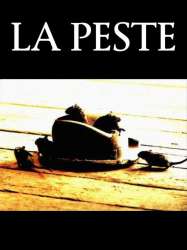
The Plague (1992)
, 1h55Directed by Luis Puenzo
Origin Argentine
Genres Drama, Action
Themes Medical-themed films, Films about viral outbreaks
Actors William Hurt, Robert Duvall, Jean-Marc Barr, Raúl Juliá, Sandrine Bonnaire, Victoria Tennant
Roles Original Music Composer
Rating56%





Deux journalistes français se retrouvent dans un port en Argentine au moment où une épidémie de peste impose une mise en quarantaine.
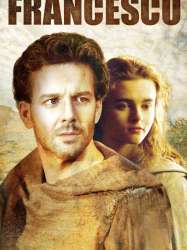
Francesco (1989)
, 1h44Directed by Liliana Cavani
Origin Italie
Genres Drama, Biography, Historical
Actors Mickey Rourke, Helena Bonham Carter, Andréa Ferréol, Peter Berling, Hanns Zischler, Stanko Molnar
Roles Original Music Composer
Rating62%





Biographie de François d'Assise.

Nosferatu in Venice (1988)
, 1h37Directed by Klaus Kinski, Mario Caiano, Luigi Cozzi, Pasquale Squitieri, Maurizio Lucidi, Augusto Caminito
Genres Horror
Themes Films about magic and magicians, Films about religion, Dracula films, Vampires in film
Actors Klaus Kinski, Christopher Plummer, Donald Pleasence, Barbara De Rossi, Yorgo Voyagis, Clara Colosimo
Roles Original Music Composer
Rating52%





Professor Paris Catalano goes to Venice to investigate the last known appearance of Nosferatu during the Carnival of 1786. Catalano seems to think that the vampire is searching for a means to put an end to his torment and actually be dead. He stays with a family who, legend says, has the vampire trapped in a tomb in the basement. After a séance "the vampire" appears and then it becomes a question of how do you put the evil back into the box.
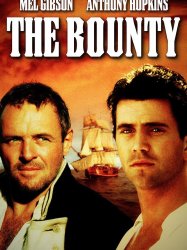
The Bounty (1984)
, 2h12Directed by Roger Donaldson
Origin United-kingdom
Genres Drama, Action, Adventure, Historical
Themes Seafaring films, Transport films
Actors Mel Gibson, Anthony Hopkins, Laurence Olivier, Edward Fox, Daniel Day-Lewis, Liam Neeson
Roles Original Music Composer
Rating69%





The film is set as flashbacks from the court martial at Greenwich of Commanding Lieutenant William Bligh (Anthony Hopkins) for the loss of HMS Bounty to mutineers led by his friend Fletcher Christian (Mel Gibson) during its expedition to Tahiti to gather breadfruit pods for transplantation in the Caribbean.

Antarctica (1983)
, 2h25Directed by Koreyoshi Kurahara
Origin Japon
Genres Drama, Thriller, Adventure
Themes Films about animals, Films about dogs, Mise en scène d'un mammifère
Actors Ken Takakura, Tsunehiko Watase, Eiji Okada, Sō Yamamura, Masako Natsume, Keiko Oginome
Roles Original Music Composer
Rating75%





In February 1958, the Second Cross-Winter Expedition for the Japanese Antarctic Surveying Team rides on the icebreaker Sōya to take over from the 11-man First Cross-Winter Expedition. Due to the extreme weather conditions in Antarctica, Sōya can not get near enough to the Showa Base and they decide not to proceed with the stay-over.

Blade Runner (1982)
, 1h56Directed by Ridley Scott
Origin USA
Genres Drama, Science fiction, Thriller
Themes Films about altered memories, Environmental films, Films about computing, Medical-themed films, Films based on science fiction novels, Films set in the future, Films about psychiatry, Films about disabilities, Political films, Films based on works by Philip K. Dick, Cyberpunk films, Dystopian films, Anticipation, Robot films, Disaster films
Actors Harrison Ford, Rutger Hauer, Sean Young, M. Emmet Walsh, Edward James Olmos, Daryl Hannah
Roles Original Music Composer
Rating80%





In Los Angeles, November 2019, retired police officer Rick Deckard (Harrison Ford) is detained by officer Gaff (Edward James Olmos) and brought to his former supervisor, Bryant (M. Emmet Walsh). Deckard, whose job as a "Blade Runner" was to track down bioengineered beings known as replicants and destroy them, is informed that four have come to Earth illegally. As Tyrell Corporation Nexus-6 models, they have only a four-year lifespan and may have come to Earth to try to extend their lives.

Missing (1982)
, 1h57Directed by Costa-Gavras
Origin USA
Genres Drama, Thriller, Documentary, Historical
Themes Seafaring films, Politique, Transport films, Political films, Films about Latin American military dictatorships
Actors Jack Lemmon, Sissy Spacek, Melanie Mayron, John Shea, Janice Rule, Charles Cioffi
Roles Original Music Composer
Rating76%





The film opens with Costa-Gavras' statement that the events of the film are true.
 Connection
Connection


